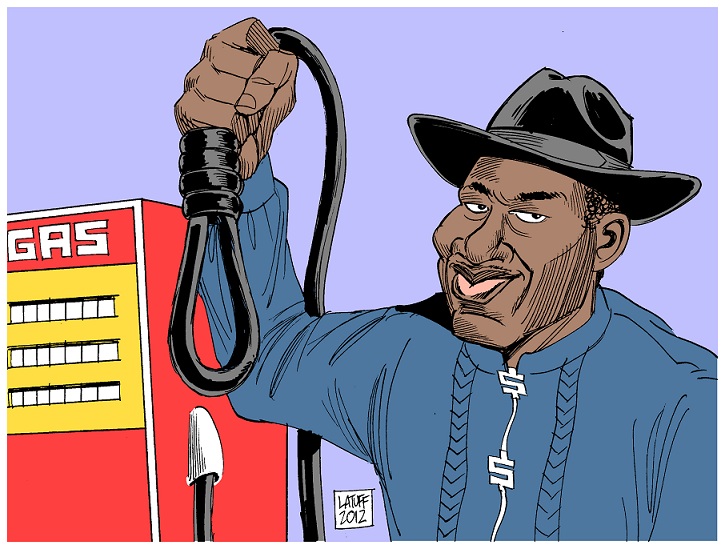In a rare success story, the Federal Government has announced that its spending on subsidy payments this year is 80% less than that of last year, thanks to the partial removal of fuel subsidies.
The Federal Government last year initiated a 49.2 percent hike in fuel prices from N67/litre to N97/litre, and this is having a positive effect on the fiscal space, say analysts.
The Federal Government has released N193 billion for subsidy payments by mid June 2013 – including N135 billion in arrears on claims from the two previous years, having allocated N971 billion in the 2013 budget for the purpose.
The fiscal cost of the subsidy to treasury in 2011 amounted to N2.19 trillion and N1.05 trillion in 2012 including a supplementary budget to reduce the mountain of arrears.
The amount of fuel imported into the country is running at a rate of 32 million litres a day in March 2013, down from the 59 million litres a day it was in 2011.
“The sharp decrease is accounted for by recorded imports which either never entered the country or were shipped across national borders,” said FBN capital analysts, led by Gregory Kronsten in a note released on Wednesday.
“The lower subsidy in Nigeria has killed off the cross-border trade. Additionally, imports of refined products are now subject to greater controls.”
The tighter controls include the use of independent cargo surveyors to verify product discharges, the requirement for further documents before subsidy claims can be met and the authorities’ access to international maritime tracking services.
A detailed report by the National Assembly recently alleged fraud totaling the equivalent of $6.8 billion. Payments totaling N2.6 trillion ($16 billion) in fuel subsidies were made in 2011 through a fraudulent process, the committee said.
The removal of the subsidy would bring substantial investment in new refining capacity as well as fiscal savings which could be channeled into overdue infrastructure projects, says FBN Capital.
“However, we do not expect another attempt by the FGN at deregulation before the elections in 2015,” they said.

